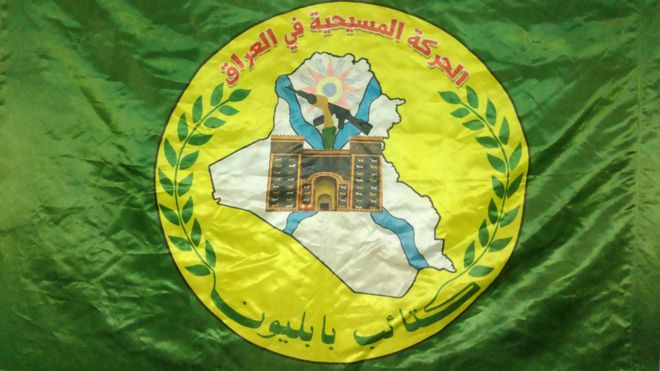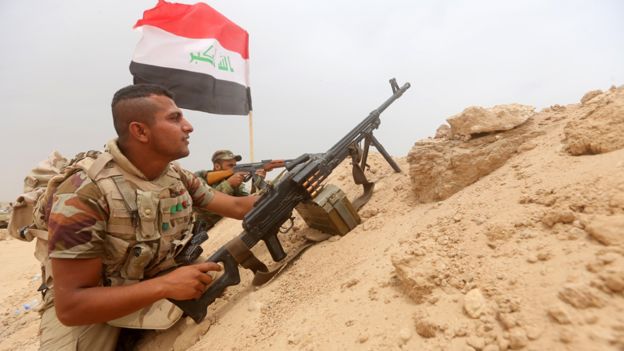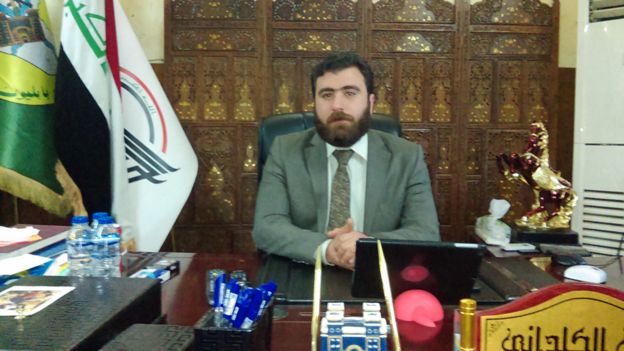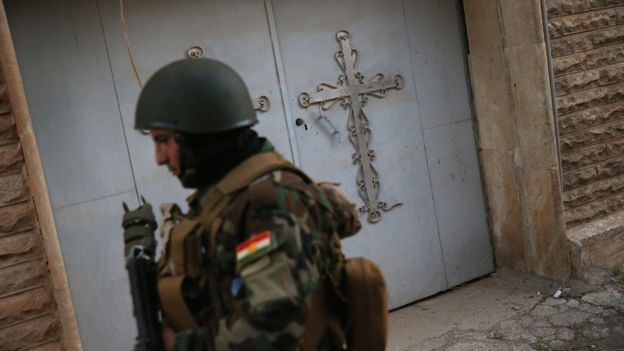Ed Murrow Reports From Buchenwald
Permit me to tell you what you would have seen and heard had you had been with me on Thursday. It will not be pleasant listening. If you are at lunch, or if you have no appetite to hear what Germans have done, now is a good time to switch off the radio for I propose to tell you of Buchenwald. It is on a small hill about four miles outside Weimar, and it was one of the largest concentration camps in Germany, and it was built to last.
As we approached it, we saw about a hundred men in civilian clothes with rifles advancing in open-order across the field. There were a few shots. We stopped to inquire. We’re told that some of the prisoners have a couple of SS men cornered in there. We drove on, reached the main gate. The prisoners crowed up behind the wire. We entered. And now, let me tell this in the first-person, for I was the least important person there, as you can hear.
There surged around me an evil-smelling stink. Men and boys reached out to touch me. They were in rags and the remnants of uniforms. Death had already had marked many of them, but they were smiling with their eyes. I looked out over that mass of men to the green fields beyond, where well-fed Germans were ploughing. A German, Fritz Kersheimer, came up and said, “May I show you around the camp? I’ve been here for ten years.” An Englishman stood to attention saying, “May I introduce myself? Delighted to see you. And can you tell me when some of our folks will be along?” I told him, “soon,” and asked to see one of the barracks. It happened to be occupied by Czechoslovakians. When I entered, men crowded around, tried to lift me to their shoulders. They were too weak. Many of them could not get out of bed. I was told that this building had once stabled 80 horses. There were 1200 men in it, five to a bunk. The stink was beyond all description. When I reached the center of the barracks, a man came up and said, “You remember me, I am Patr Zenkl, one time mayor of Prague.” I remembered him, but did not recognize him. He asked about Benes and Jan Masaryk. I asked how many men had died in that building during the last month. They called the doctor; we inspected his records. There were only names in the little black book, nothing more — nothing of who had been where, what they had done or hoped. Behind the names of those who had died there was a cross. I counted them. They totaled 242, two hundred and forty-two out of 1200 in one month.
As I walked down to the end of the barracks, there was applause from the men too weak to get out of bed. It sounded like the hand-clapping of babies, they were so weak. The doctors name was Paul Heller. He had been there since ’38. As we walked out into the courtyard, a man fell dead. Two others–they must have been over 60–were crawling toward the latrine. I saw it, but will not describe it.
In another part of the camp they showed me the children, hundreds of them. Some were only six. One rolled up his sleeve, showed me his number. It was tattooed on his arm. B-6030, it was. The others showed me their numbers. They will carry them till they die. An elderly man standing beside me said, “The children–enemies of the state!” I could see their ribs through their thin shirts. The old man said, “I am Professor Charles Richer of the Sorbonne.” The children clung to my hands and stared. We crossed to the courtyard. Men kept coming up to me to speak to me and touch me, professors from Poland, doctors from Vienna, men from all of Europe. Men from the countries that made America.
We went to the hospital; it was full. The doctor told me that two hundred had died the day before. I asked the cause of death. He shrugged and said: “Tuberculosis, starvation, fatigue, and there are many who have no desire to live. It is very difficult.” Dr. Heller pulled back the blanket from a man’s feet to show me how swollen they were. The man was dead. Most of the patients could not move.
As we left the hospital, I drew out a leather billfold, hoping that I had some money which would help those who lived to get home. Professor Richer from the Sorbonne said, “I should be careful of my wallet if I were you. You know there are criminals in this camp, too.” A small man tottered up, say, “May I feel the leather, please? You see, I used to make good things of leather in Vienna.” Another man said, “My name is Walter Roeder. For many years I lived in Joliet. Came back to Germany for a visit and Hitler grabbed me.
I asked to see the kitchen; it was clean. The German in charge had been a Communist, had been at Buchenwald for nine years, had a picture of his daughter in Hamburg. He hadn’t seen her in twelve years, and if I got to Hamburg, would I look her up? He showed me the daily ration: one piece of brown bread about as thick as your thumb, on top of it a piece of margarine as big as three sticks of chewing gum. That, and a little stew, was what they received every twenty-four hours. He had a chart on the wall; very complicated it was. There were little red tabs scattered through it. He said that was to indicate each ten men who died. He had to account for the rations, and he added, “We’re very efficient here.”
We went again into the courtyard, and as we walked, we talked. The two doctors, the Frenchman and the Czech, agreed that about six thousand had died during March. Kershenheimer, the German, added that back in the winter of 1939, when the Poles began to arrive without winter clothing, they died at the rate of approximately nine hundred a day. Five different men asserted that Buchenwald was the best concentration camp in Germany; they had had some experience of the others.
Dr. Heller, the Czech, asked if I would care to see the crematorium. He said it wouldn’t be very interesting because the Germans had run out of coke some days ago, and had taken to dumping the bodies into a great hole nearby. Professor Richer said perhaps I would care to see the small courtyard. I said yes. He turned and told the children to stay behind. As we walked across the square, I noticed that the professor had a hole in his left shoe and a toe sticking out of the right one. He followed my eyes and said, “I regret that I am so little presentable, but what can one do?” At that point, another Frenchman came up to announce that three of his fellow countrymen outside had killed three SS men and taken one prisoner.
We proceeded to the small courtyard. The wall was about eight feet high. It adjoined what had been a stable or garage. We entered. It was floored with concrete. There were two rows of bodies stacked up like cordwood. They were thin and very white. Some of the bodies were terribly bruised, though there seemed to be little flesh to bruise. Some had been shot through the head, but they bled but little. All except two were naked. I tried to count them as best I could, and arrived at the conclusion that all that was mortal of more than five hundred men and boys lay there in two neat piles.
There was a German trailer, which must have contained another fifty, but it wasn’t possible to count them. The clothing was piled in a heap against the wall. It appeared that most of the men and boys had died of starvation; they had not been executed. But the manner of death seemed unimportant. Murder had been done at Buchenwald. God alone knows how many men and boys have died there during the last twelve years. Thursday, I was told that there were more than twenty thousand in the camp. There had been as many as sixty thousand. Where are they now? As I left the camp, a Frenchman who used to work for Havas in Paris came up to me and said, “You will write something about this, perhaps?” And he added, “To write about this, you must have been here at least two years, and after that–you don’t want to write any more.”
I pray you to believe what I have said about Buchenwald. I have reported what I saw and heard, but only part of it. For most of it, I have no words. Dead men are plentiful in war, but the living dead, more than twenty thousand of them in one camp. And the country round about was pleasing to the eye. And the German were well-fed and well-dressed. American trucks were rolling toward the rear filled with prisoners. Soon they would be eating American rations, as much for a meal as the men at Buchenwald received in four days.
If I have offended you by this rather mild account of Buchenwald, I’m not in the least sorry. I was there on Thursday, and many men in many tongues blessed the name of Roosevelt. For long years his name has meant the full measure of their hope. These men who had kept close company with death for many years did not know that Mr. Roosevelt would, within hours, join their comrades who had laid their lives on the scales of freedom.
Back in 1941, Mr. Churchill said to me with tears in his eyes, “One day the world and history will recognize and acknowledge what it owes your President.” I saw and heard the first of that installment at Buchenwald on Thursday. It came from men from all over Europe. Their faces, with more flesh on them, might have been found anywhere at home. To them, the name Roosevelt was a symbol, a code word for a lot of guys named Joe who are somewhere out in the blue, with the armor, heading east. At Buchenwald they spoke of the President just before he died. If there be a better epitaph, history does not record it.





